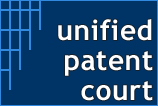The Preparatory Committee for the Unified Patent Court (UPC) expects the court to become operational in December of this year, with the Provisional Application Phase (PAP) starting by the end of spring 2017, probably in May.
This has been announced on the committee’s website.
 According to the announcement, ‘the start of the sunrise-period for the possibility to opt out European patents is now planned for early September 2017 which will provide a minimum of 3 months for patent holders who wish to opt out their patents to do so before the Court becomes operational.’
According to the announcement, ‘the start of the sunrise-period for the possibility to opt out European patents is now planned for early September 2017 which will provide a minimum of 3 months for patent holders who wish to opt out their patents to do so before the Court becomes operational.’
The Preparatory Committee stresses: ‘The above timetable is conditional and provided with the clear disclaimer that there are a number of factors that will dictate whether it is achievable. The most important factors in meeting these dates is the necessary ratifications of the UPCA and accession to the Protocol on Provisional Application. If these are not achieved the time-plan will be disrupted.’ This refers to the UK and Germany, among others. Ratification by both states is required for the UPCA to enter into force. Their ratifications are expected this spring; all eyes are on the UK especially, as its government has announced it will push for ratification despite the Brexit vote, but Parliament has of course a final say in this.
During the PAP, the UPC will be formally established, including the start of operation of the UPC’s governing bodies. ‘It will also mean that judicial interviews can begin and appointments eventually confirmed.’
A final meeting of the Preparatory Committee will be held in early March 2017. ‘Those who have applied for judicial appointments will be contacted separately’, according to the announcement.
For regular updates on the Unitary Patent and the Unified Patent Court, subscribe to this blog and the free Kluwer IP Law Newsletter.
_____________________________
To make sure you do not miss out on regular updates from the Kluwer Patent Blog, please subscribe here.
Kluwer IP Law
The 2022 Future Ready Lawyer survey showed that 79% of lawyers think that the importance of legal technology will increase for next year. With Kluwer IP Law you can navigate the increasingly global practice of IP law with specialized, local and cross-border information and tools from every preferred location. Are you, as an IP professional, ready for the future?
Learn how Kluwer IP Law can support you.



Whatever one’s position about the UPC is, it might have been better to wait until PM May has disclosed her intentions about the coming Brexit which should take place today.
If as suggested by some newspapers a hard Brexit is on the cards, how will UK remain in the UPC?
As PM may has clearly stated today that UK does not want to be submitted to the jurisdiction of the EuCJ, the participation of UK can be put ad acta.
Without accepting in patent matters the jurisdiction of the EuCJ is the end of the participation of UK to the UPC, at latest at the end of the Brexit negotiations. Even if UK would ratify, it would have to leave by then. So why ratify?
Pandora’s box is open again. What will happen with the London section of the central division?